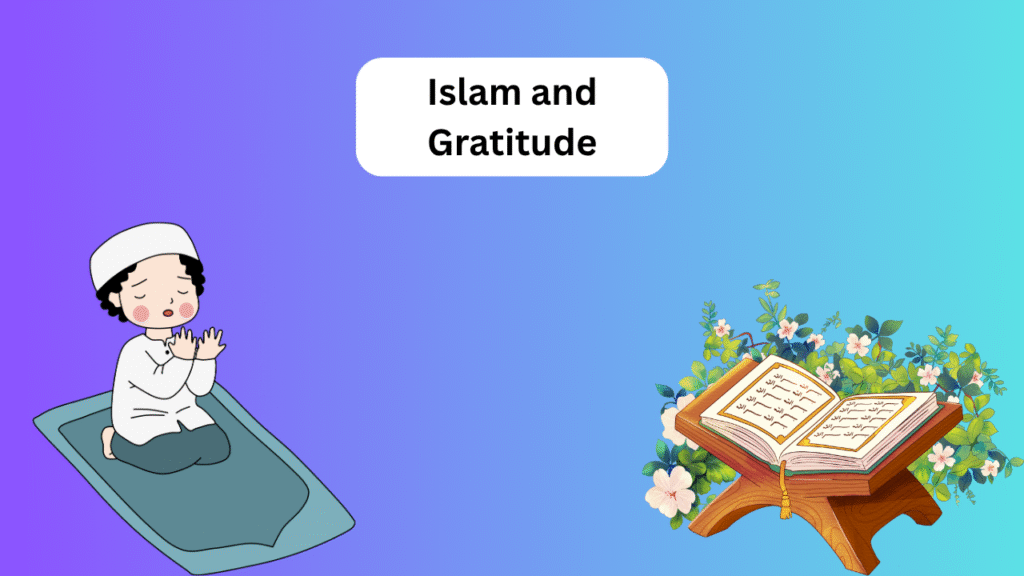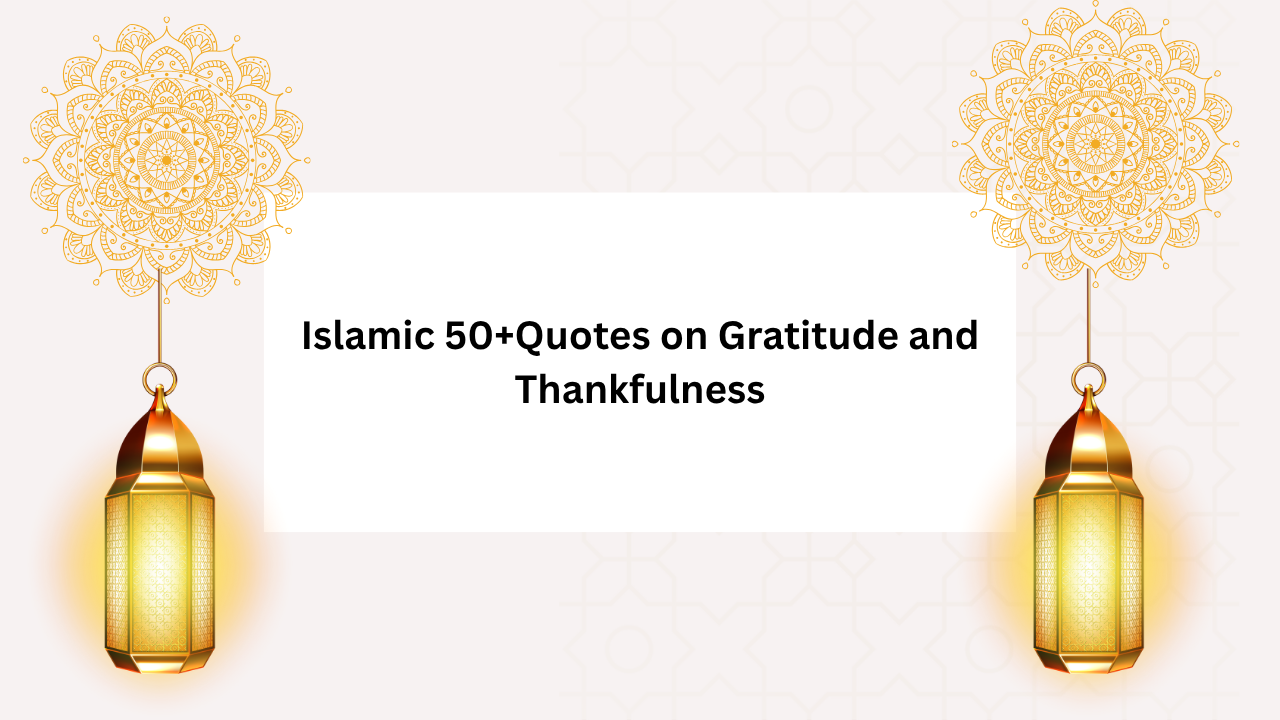In Islam, gratitude (shukr) is not merely a polite response to blessings—it is a profound spiritual discipline that reshapes our entire relationship with Allah. This collection of 50+ powerful Islamic gratitude quotes from the Quran, Hadith, and the wisdom of scholars and saints illuminates the transformative power of thankfulness in every aspect of a believer’s life.
True Islamic gratitude transcends circumstances. It means thanking Allah not only for visible blessings but also for hidden mercies in difficulties, for unanswered prayers that protect us, and for tests that purify our hearts. These quotes reveal how the Prophets and righteous believers maintained gratitude in times of both abundance and hardship, showing us that shukr is ultimately an act of deep trust in Allah’s perfect wisdom.In the ocean of divine mercy, gratitude is the vessel that carries believers to the shores of Allah’s infinite blessings. The concept of shukr (gratitude) in Islam transcends mere words – it’s a comprehensive way of life that transforms ordinary moments into extraordinary worship. As Allah promises in the Quran: “If you are grateful, I will surely increase you” (14:7), this collection illuminates the path to recognizing, appreciating, and multiplying Allah’s countless favors through:
The Meaning of Islamic Gratitude
- “Islamic gratitude begins when we recognize that every heartbeat is a divine gift requiring acknowledgement through worship and righteous living.”
- “True shukr means using Allah’s blessings as He commanded – our health in His service, wealth in charity, time in remembrance.”
- “Gratitude in Islam has three pillars: acknowledgment in the heart, expression through the tongue, and utilization of blessings in obedience.”
- “The believer’s gratitude shines brightest when they thank Allah equally for trials and comforts, trusting His wisdom in both situations.”
- “Islamic gratitude transforms ordinary moments into worship when we consciously connect each blessing to its Divine Source.”

Quranic Verses on Islamic Gratitude
- “Surah Ibrahim 14:7 – ‘If you are grateful, I will surely increase you’ – Allah’s eternal promise to the thankful heart.”
- “Surah An-Nahl 16:18 – ‘If you tried to count Allah’s blessings, you could never number them’ – a call to constant awareness.”
- “Surah Al-Baqarah 2:172 – ‘Eat of the good things We have provided and be grateful to Allah if you worship Him alone.'”
- “Surah Luqman 31:12 – ‘We gave wisdom to Luqman: Be grateful to Allah’ – linking divine wisdom with thankful consciousness.”
- “Surah An-Naml 27:40 – ‘This is from the bounty of my Lord to test me whether I will be grateful’ – Solomon’s insight.”
Hadith s on Islamic Gratitude
- “The Prophet (ﷺ) said: ‘Whoever doesn’t thank people hasn’t thanked Allah’ (Tirmidhi) – connecting human and divine gratitude.”
- “Aisha reported: The Messenger (ﷺ) would stand in prayer until his feet swelled, saying ‘Shouldn’t I be a thankful slave?'”
- “The Prophet (ﷺ) taught: ‘Eat together and mention Allah’s name, for blessings descend when gratitude is expressed’ (Abu Dawud).”
- “Abu Huraira reported: ‘Allah is pleased when you eat something and praise Him for it’ (Muslim) – gratitude in daily acts.”
- “Ibn Abbas reported: The Messenger (ﷺ) would say after meals: ‘Praise be to Allah who fed us and gave us drink.'”
The Spiritual Significance of Islamic Gratitude
- “Gratitude is the bridge between receiving blessings and receiving more – it’s the spiritual law of divine multiplication.”
- “A thankful heart attracts Allah’s mercy like flowers attract bees – naturally, constantly, and in increasing measure.”
- “Shukr transforms ordinary believers into extraordinary servants – where others see coincidence, they see divine providence everywhere.”
- “The spiritually grateful recognize that trials themselves are blessings in disguise – opportunities for growth wrapped in difficulty’s clothing.”
- “Gratitude elevates the soul from the prison of ‘what I lack’ to the palace of ‘look what I’ve been given.'”
Islamic Gratitude Leads to Inner Peace
- “When gratitude becomes your lens, anxiety fades – every ‘I lack’ transforms into ‘Allah provides’ with perfect timing.”
- “Hearts anchored in shukr cannot drown in despair – they float on certainty of Allah’s measured provisions and mercy.”
- “Islamic gratitude replaces ‘why me?’ with ‘Alhamdulillah’ – shifting focus from problems to the Problem-Solver who never errs.”
- “The peace of gratitude comes from knowing nothing happens without purpose – even hardships carry hidden blessings we’ll understand later.”
- “A thankful Muslim sleeps peacefully, not because life is perfect, but because trust in Allah’s plan is complete.”
Islamic Gratitude Prevents Arrogance
- “Gratitude is the antidote to pride – remembering every skill is Allah’s gift keeps the ego in check.”
- “When success comes, the grateful believer’s first thought isn’t ‘I earned this’ but ‘Allah enabled this’ – humility preserved.”
- “Arrogance withers when we acknowledge: Our lungs inhale by Allah’s will, our hearts beat by His command alone.”
- “The more blessings we receive, the lower our prostration should be – true gratitude kneels where pride would strut.”
- “Ibn Abbas taught: ‘Three things prevent arrogance – remembering our dusty origin, our dusty destiny, and that we owe Allah everything.'”
Islamic Gratitude Strengthens Faith
- “Each ‘Alhamdulillah’ is a brick in the fortress of faith – the more we thank, the stronger our belief becomes.”
- “Gratitude and iman are twins – as one grows, so does the other, each nourishing and supporting its counterpart.”
- “The thankful believer sees Allah’s hand in everything – their faith becomes a living, breathing experience rather than mere theory.”
- “Shukr during hardship is faith’s highest test – passing it strengthens belief more than a thousand comfortable ‘Alhamdulillahs.'”
- “Gratitude transforms faith from a concept in the mind to a flame in the heart that illuminates every aspect of life.”
Practical Ways to Cultivate Islamic Gratitude
- “Begin each Fajr by naming three specific blessings – from eyelashes that blink to faith that illuminates – and watch gratitude grow.”
- “Count blessings not by what’s missing, but by what’s present – clean water, functioning limbs, the Quran in your hands.”
- “Keep a ‘Alhamdulillah List’ – when sadness comes, read it and remember Allah’s favors outnumber problems infinitely.”
- “Ponder the miracle of your existence – among millions of sperm, Allah chose you to live, breathe and worship Him.”
- “Compare your blessings to those with less, not more – the hungry child would cherish your leftovers as a feast.”
Reflect on Your Blessings
- “The sun doesn’t bill you for light, nor does air charge for breath – recognize Allah’s free gifts before seeking more.”
- “Your body works tirelessly while you sleep – organs functioning, cells regenerating – an unpaid workforce of divine miracles.”
- “The ability to read these words is a quadruple blessing – literacy, eyesight, mental capacity, and access to knowledge.”
- “Your past prayers that were answered but forgotten are current reasons for gratitude – dig up these buried treasures.”
- “The ‘small’ blessings we overlook – a cool breeze, a warm bed, a remembered dream – are big when absent.”
Express Islamic Gratitude in Prayer
- “Let your sujood whisper thanks – for guidance, forgiveness, and the privilege of bowing to the King of Kings.”
- “After each prayer, add two minutes of personal dua just for gratitude – name blessings one by one with love.”
- “Make your tasbeeh count – when saying ‘Alhamdulillah’, visualize specific blessings rather than empty repetition of the tongue.”
- “The Prophet’s sunnah teaches us to thank Allah after waking, eating, drinking – weaving gratitude into daily rituals.”
- “Transform waiting times into gratitude sessions – at red lights or queues, mentally list Allah’s unnoticed mercies.”
Show Islamic Gratitude to Others
- “The Prophet’s smile was gratitude in action – sometimes thankfulness is shown through facial muscles before words.”
- “Write thank-you notes as sadaqah – your appreciation nourishes hearts as charity nourishes bodies.”
- “Service is gratitude made visible – use your skills to help others as thanks for being given those abilities.”
- “Thank the unseen hands – the farmers for your food, parents for sacrifices, teachers for knowledge you use daily.”
- “Express gratitude to difficult people too – they’re Allah’s sandpaper smoothing your rough edges through friction.”
Keep a Gratitude Journal
- “Date each entry with both Gregorian and Hijri dates – connect your gratitude to Islamic time consciousness.”
- “Record not just blessings but their sources – trace the chain of how Allah delivered each favor to you.”
- “Include ‘negative gratitude’ – things that didn’t happen (accidents, illnesses) but could have – prevention is also a blessing.”
- “Review old entries during low moments – your past gratitude becomes present comfort during trials.”
- “Share select entries with family – make gratitude a contagious household practice that multiplies blessings.”
Charity as a Form of Islamic Gratitude
- “Give not from excess but from love – let your charity say ‘Thank You’ for being able to give.”
- “Zakat is obligatory gratitude, sadaqah is voluntary love – both acknowledge that wealth ultimately belongs to Allah.”
- “The most meaningful charity often comes from what we cherish – giving what we’d keep shows true thankfulness.”
- “Give secretly sometimes – let certain acts of gratitude be between you and Allah alone.”
- “Teach your children to donate their favorite toys – planting seeds of grateful giving early.”
Islamic Gratitude in Difficult Times
- “Gratitude during trials is faith’s highest form – saying ‘I trust You’ when life hurts proves love isn’t conditional.”
- “When prayers seem unanswered, thank Allah anyway – His ‘no’ or ‘wait’ contains protections we may never comprehend.”
- “Job’s example teaches: Losing everything doesn’t mean losing Allah’s love – gratitude persists beyond circumstances.”
- “The believer thanks in storms knowing Allah either shields from worse or prepares greater blessings after difficulty.”
- “Allah’s delays aren’t denials – express gratitude for timing you can’t see but He perfectly orchestrates.”
Trusting in Allah’s Wisdom
- “The gardener doesn’t explain to the seed why he bends it – trust divine wisdom behind life’s uncomfortable positions.”
- “Allah’s curriculum includes both easy and hard lessons – gratitude helps us learn from each class.”
- “Present hardship + gratitude = future wisdom. The equation always balances in Allah’s perfect mathematics.”
- “When you can’t trace Allah’s hand, trust His heart – gratitude is the bridge between confusion and peace.”
- “The faithful see life’s puzzle pieces from beneath – gratitude trusts the Designer sees the complete beautiful picture.”
Conclusion
Gratitude in Islam, especially during trials, is a profound act of faith and trust in Allah’s wisdom. It means acknowledging His plan even when His answers are “no” or “wait,” understanding that every hardship carries hidden mercy or protection. The example of Prophet Job (Ayyub) reminds us that loss does not mean abandonment—true gratitude transcends circumstances. A believer remains thankful, knowing that storms either shield them from greater harm or precede greater blessings. Allah’s timing is perfect, and His delays are never denials. Thus, sincere gratitude in difficulty is not just patience—it is unwavering belief in divine love and wisdom.

